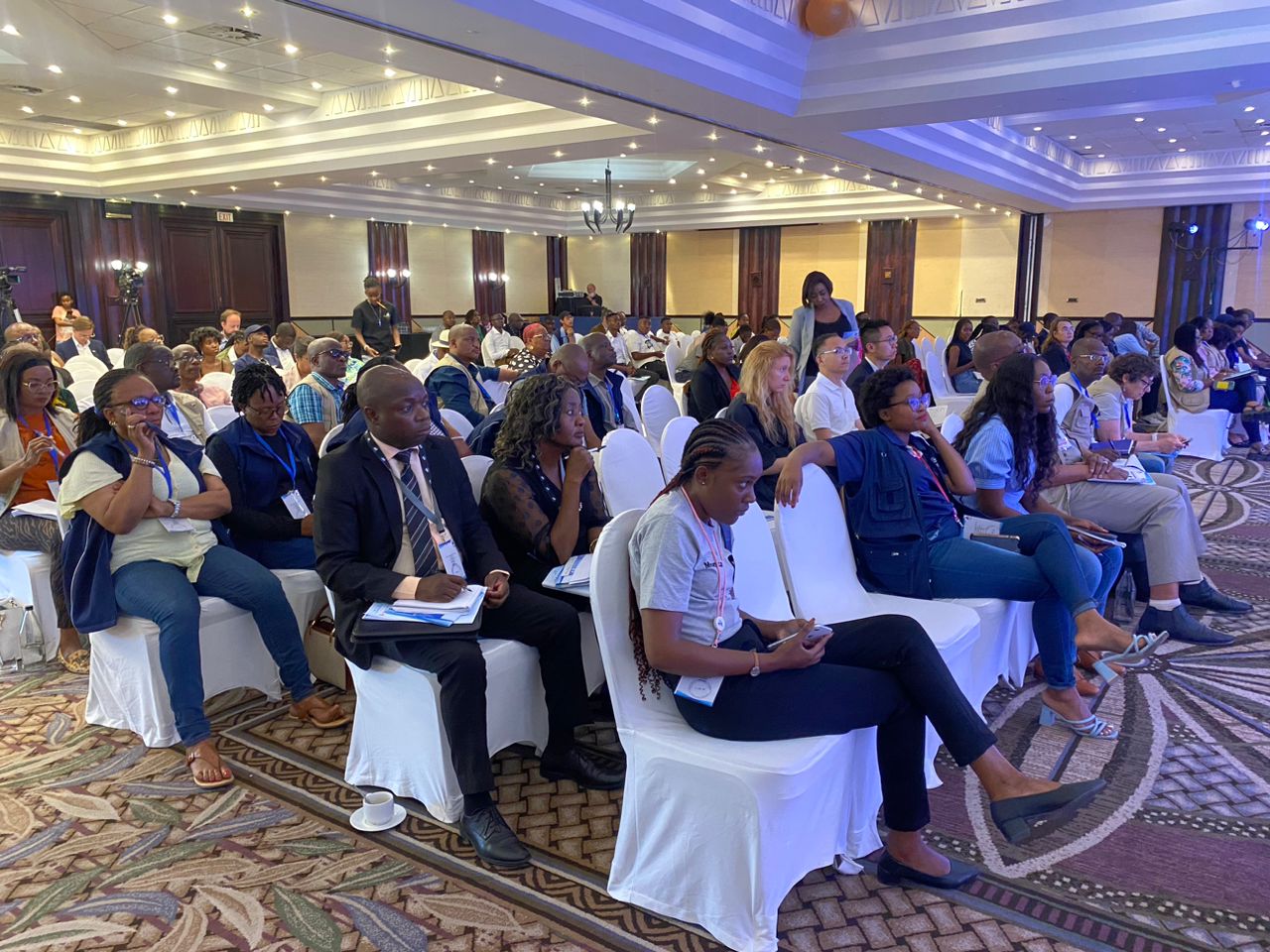James Mnyupe’s analysis of the manifestos of various political parties takes umbrage with the IPC’s position on green hydrogen (‘The ‘Faces’ of Green Hydrogen in Namibia’, The Namibian, 21 September ).
Mnyupe, Namibia’s Green Hydrogen Commissioner, must be commended for his civic engagement.
It is churlish to critique his analysis but I would be remiss not to point out what appears to be a conflation of two issues, namely (a) whether government should support green hydrogen at all and, if so, what form the support should take; and (b) whether green hydrogen is a feasible or worthwhile investment.
I argue that in a democracy, question (b), which goes to investment analysis and business judgement, is secondary to question (a), which is about voter preference and popular politics.
Unlike (b), question (a) appeals to the mandate for allocating public resources, a daunting task in a society beset by systemic deprivation.
Making a case for (b) rather than (a) without tracing it to a political mandate puts the proverbial cart before a non-existent horse.
I pose some questions to guide the commissioner if he is to engage meaningfully with politicians in their native tongue.
THE CONFLATION
Mnyupe’s beef is with the Independent Patriot for Change’s remarks that green hydrogen is “only for export”, “will not fit into our grid”, and is an “experiment” the party “would not waste time on” (sic).
The commissioner takes this as a rejection of governmental, private, and international efforts to bring this industry online.
I will explain later why this objection is misplaced but, on its face, it is a strawman.
It does not follow from the IPC’s comments that it seeks to reject the efforts of the young Namibian researchers and entrepreneurs or curtail private investment in the sector.
I hold no brief for the IPC, but the full extent of their stance is that the government should focus on tried and tested low-carbon energy sources like nuclear.
The constitutionally entrenched right to private property and freedom of occupation, trade or business guarantees that private initiatives and investments in the sector should continue just fine, and if Mnyupe is right about private investors circling this space, it is not obvious why state divestment would pose an existential threat.
DECODING THE POLITICAL LINGO
The late American philosopher Ronald Dworkin concluded that resource allocation in a democracy is a preference-sensitive issue.
If voters elect a party that runs on building football stadiums instead of tackling the climate change agenda, them’s the breaks.
Democracy fully entitles us to make collective fools of ourselves.
An exception to preference sensitivity is the perennial mandate to allocate resources that sustain the answer to Hobbesian ‘first’ political questions, such as the securing of order, protection, safety, and other conditions of cooperation which make the existence of the state possible.
The state, regardless of democratic preference, must fund basic public goods such as defending its territory, protecting basic human rights, and securing the rule of law through independent courts.
This is woven into our Constitution in the form of, for example, fundamental rights and the institutions which protect them (the police, army, the courts, etc).
Dworkin makes the compelling case for why a human right to basic social security must exist, as the brute luck of birth should not determine whether one gets relegated to a life of destitution.
This makes social security a ‘first’ political question which must attract state funding.
Our Constitution is flawed in not recognising this right, and our collective moral intuition seems to have led us to a place where we do not care much for the less fortunate.
MANIFESTOS AND MANDATES
As the source of government money is the taxpayer, the assumption is that resources must be used to fund the mandate given by the voters as tacitly agreed through manifestos and political campaigns.
In investment professional speak, the manifesto of a political party includes terms of its proposed discretionary investment mandate, with parameters for how it plans to invest or allocate public recourses.
By making quick work of the green hydrogen sector, the IPC might be saying it is too risky an asset class for a state with Namibia’s financial profile.
The commissioner’s rhetorical question about who the IPC is rejecting (the government or the Namibian people) is therefore politically confused.
The IPC is proposing a mandate that will end government’s current involvement in green hydrogen, so of course if it is rejecting the current government’s choice of mandate.
If elected on the back of this, it is Namibians who would have “revoked” the mandate to invest in this sector.
It would be tempting to argue that a future government is obliged to continue investment in this sector because doing so would waste the costs already invested by the previous government.
However, this would be anti-democratic and an instance of the sunk cost fallacy. Thankfully, commissioner Mnyupe does not make this argument.
BACK TO BASICS
Resource allocation occurs against competing demands within the constraints of a limited budget.
Namibians, many of them children, are subjected to abject, gut-wrenching, back-breaking poverty, a fact which is hard to fathom given our tiny population.
The World Food Programme’s Hunger Index ranks Namibia at 76/116 countries, suggesting we have people suffering from serious hunger.
Children go through a public education system so embarrassing that they will be ill-prepared to understand what green hydrogen is, never mind competing with global talent for the types of high skill jobs that the green hydrogen sector promises to deliver.
That some youngsters do emerge from this system to scale greater heights, such as the two doctors who Mnyupe righty admires in his piece, is nothing short of a miracle.
I say all this to make the point that while state budgeting can easily be confused for bean counting, properly understood, it involves a moral calculation about which urgent needs ought to attract resources, and a finite budget mean this is a zero-sum game.
Allocating resources to green hydrogen and not to other urgent priorities has consequences which can be measured in human lives.
Making the moral case for a basic income grant or school feeding scheme is easy work, but to rank green hydrogen next to these basic needs would be a hard row to hoe.
This is all probably rudimentary stuff for the commissioner but, properly distilled, politics is the art of what is attainable.
So, in a sense, it is the business of asking basic questions.
THE CASE FOR (OR AGAINST) GREEN HYDROGEN
From a number of online interviews and his latest piece in The Namibian, Mnyupe’s main defence of green hydrogen seems centred on the theme that it will put Namibia at the centre of the global low-carbon energy market, and we should keep up the momentum and continue to move with alacrity to occupy this space.
This makes for a compelling pitch in a private placement memorandum but it is a political non-starter, in part because of history.
Using state resources to prop up the green hydrogen space was conceived of and sold as a political choice.
Intellectual honesty demands that it be defended as such.
Green hydrogen is tethered to our late president’s mandate, which is why the political questions would not have come as sharply during his term.
However, that political term is about to end. A political defence of this industry must therefore (re)address a series of existential questions, such as:
• Why should green hydrogen remain part of state energy policy?
The clue might lie in how it was put on there in the first place, and why it was necessary for the state to make any financial or capital commitment to the sector, given the many pressing socio-economic demands on the public purse.
A competent answer would defend against the charge that this was a speculative investment which put scarce resources into a nascent industry with no guarantee that it will become viable.
• A significant amount of green hydrogen assets are earmarked for export (there is little point in denying this; domestic consumption alone will not generate sufficient demand to sustain the sector) so why should foreign investors not pick up the initial capital outlay and financial risk?
What is wrong with the state collecting revenue and/or delaying investment until the industry reaches investment grade?
• Why not focus state resources on a smart and transparent regulatory framework to attract investment into the low-carbon economy?
Compulsory Environmental and Social Governance (ESG) investment mandates mean there is plenty of investment capital for green energy markets.
Should we not ramp up regulatory capacity to become a serious ESG-friendly investment destination?
• What happens to the sector if Swapo’s grip on state power slips, and we enter an era of competitive politics with the possibility of coalition governments?
How should the industry futureproof itself against regular shifts in government policy?
• In a word, corruption because this is Namibia.
POLITICAL SEASONS
It is unusual for an unelected functionary to be at the forefront of defending a political mandate.
Consummate professionals like the commissioner usually stick to slide deck pitches to private investors far away from the dusty colosseum of partisan politics.
But if Mnyupe wishes to enter the political fray, he would do well to appreciate that what passes as self-evident under one administration can quickly become a heresy at the next election cycle.
This might be to his chagrin, but uneasy lies the head that wears the crown.
– Metumo Shilongo is a professional overthinker and Namibian citizen
Stay informed with The Namibian – your source for credible journalism. Get in-depth reporting and opinions for
only N$85 a month. Invest in journalism, invest in democracy –
Subscribe Now!






